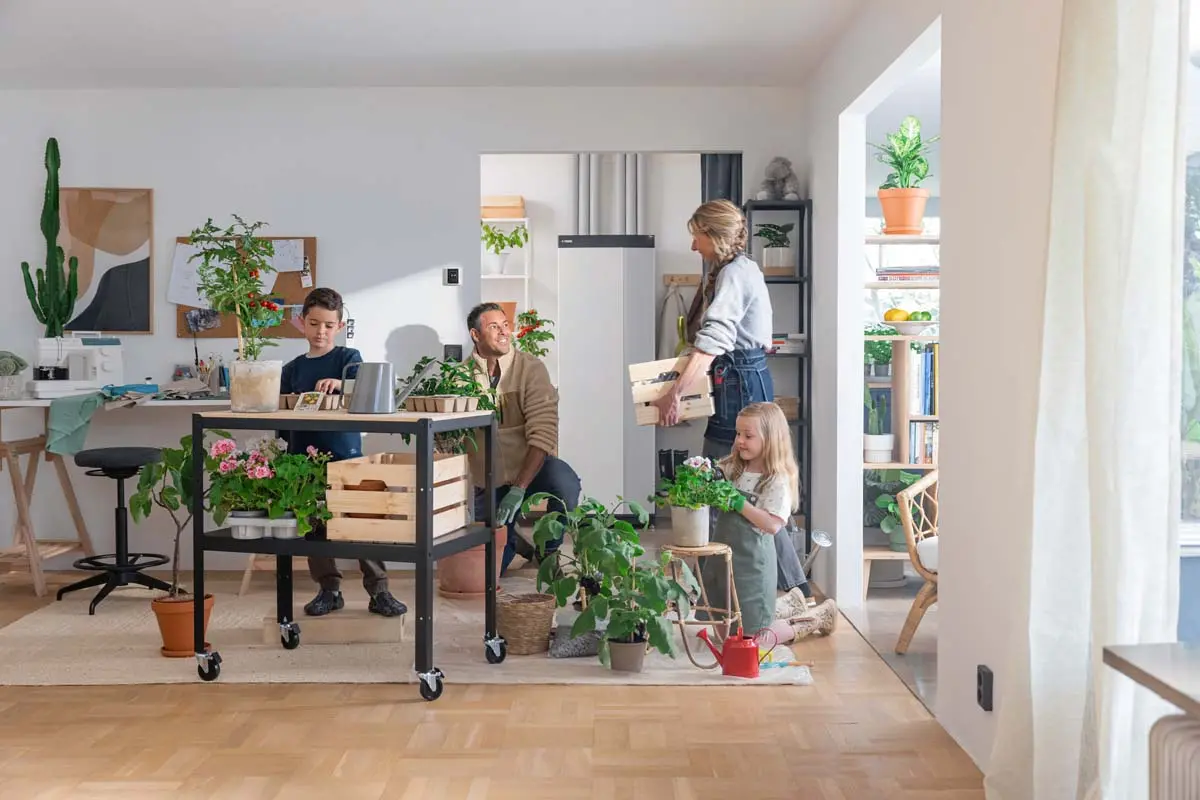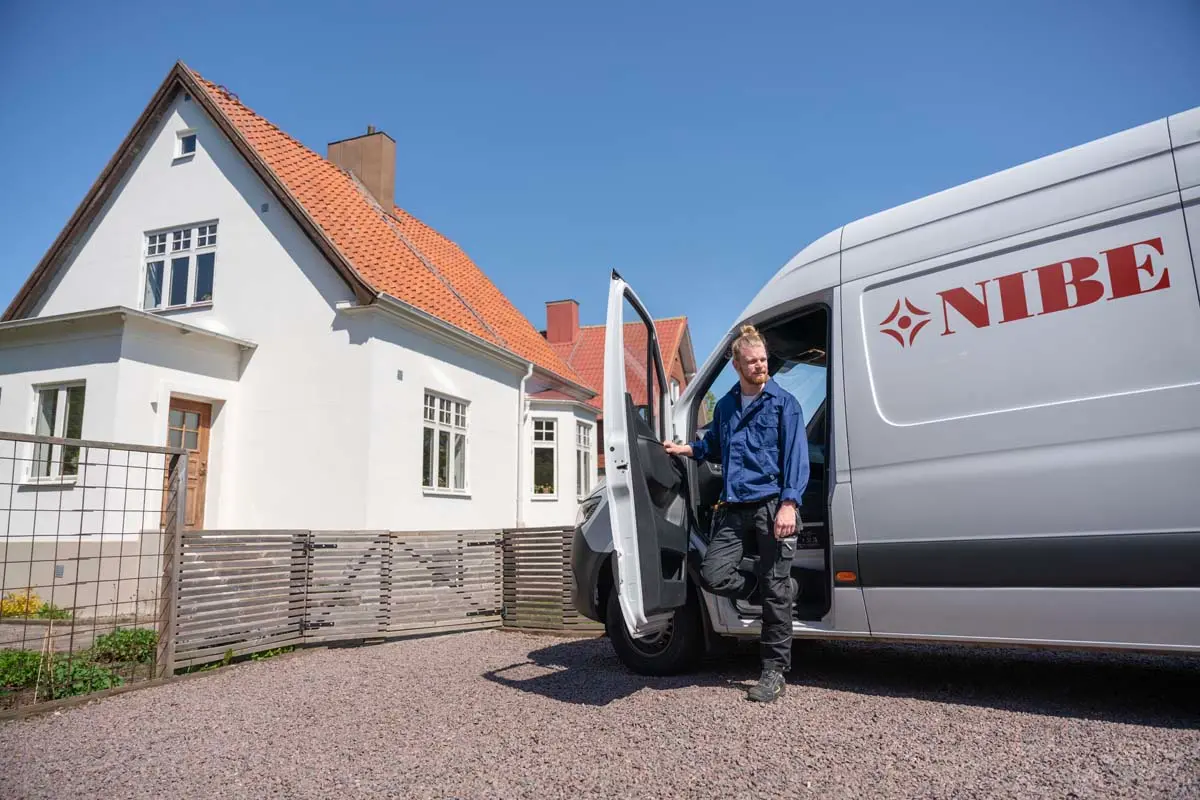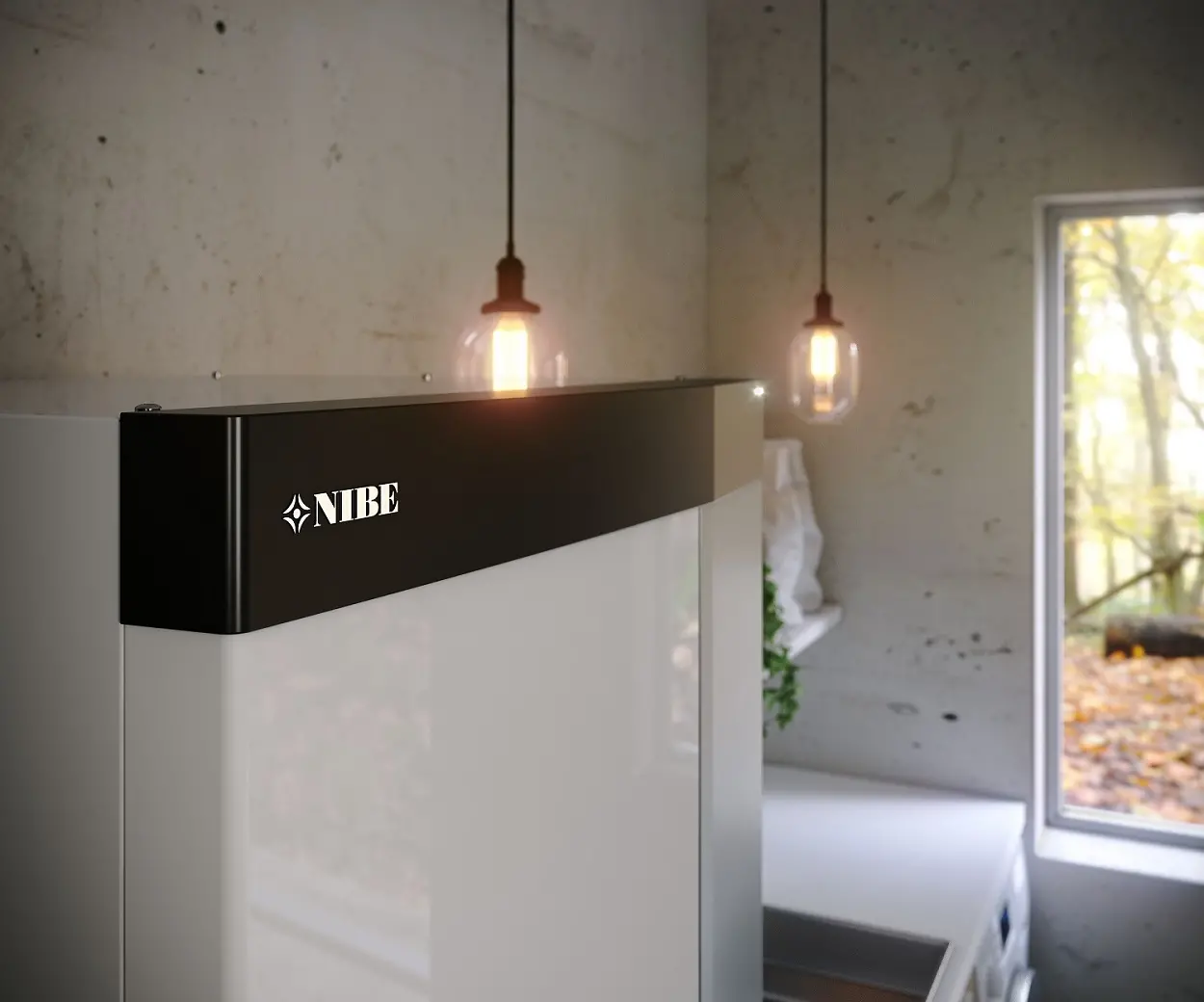Everything you need to know about heat pumps

Everything you need to know about heat pumps
If you’re thinking about getting a heat pump installed, then you’ll want to know as much as possible about this low-carbon heating alternative.
In this article, we will unpick this next-generation heating solution, as we look at how a heat pump works, the different types, and the pros and cons. If you want heating pumps explained in a concise and digestible way, then NIBE is here to help.
What is a heat pump?
Heat Pumps use air, ground or ever water sources to generate heating and hot water for your home, using the principles of a refrigeration cycle.
As the heat pump is using natural heat from the environment, this heating solution doesn’t emit any carbon dioxide and is regarded as an environmentally friendly method for heating your home.
How do heat pumps work?
The process of heating a home and its water supply using a heat pump can appear quite complex on the surface, which is why we have put together this helpful video that simply explains how heat pumps work.
Different types of heat pumps
There are typically four main types of heat pumps.
- Air source heat pump
An air source heat pump extracts heat energy from the outside air, supplying a home with both heating and hot water. Not only is it used in the winter, but the process can also be reversed to make the air cooler during the summer months.
This type of system consists of an outdoor module, combined with an indoor or control module. By working together in unison, it creates a system that’s easy to install, run, and maintain.
- Ground source heat pump
This heat pump uses solar energy that is stored in the ground and at the bottom of lakes. The ground source heat starts at the surface during the spring before being stored deeper under the ground when the weather gets warmer.
The ground source heat pump will then extract heat from this stored energy using either buried collectors or holes drilled deep into the ground. Using a combination of water and eco-friendly antifreeze which circulates in a sealed loop, the heat energy is extracted from the ground and transferred to the heat pump.
- Exhaust air heat pump
An exhaust air heat pump works by first ventilating a home and then returning the ventilated air’s heat energy to heat the whole system. Put simply, it uses energy from old consumed air within a building, helping to remove air from wet or cold rooms in the process.
It creates a slight negative pressure to allow air from other areas of the house to circulate where needed, while new outdoor air is drawn in through the valves in the outer walls to ensure all rooms in the home are fully ventilated.
Finally, circulated air is taken through the house's duct system and the heated room air is led to the heat pump where the energy in the air is recovered.
- Water source heat pump
Extracting heat from a body of water, a water source heat pump will then turn this into energy to heat your home. It does this by using submerged pipes that contain a working fluid that absorbs heat from a body of water.
This working fluid is then compressed so it heats a house and its water supply. Out of the four heat pump types we have discussed, this tends to be the less popular option.
For more on the types of heat pumps NIBE offer, visit our how a heat pump works page.
Pros and cons of heat pumps
While the benefits of heat pumps outweigh the negatives, there are some arguments that can be made for both sides. In order to help you decide whether a heat pump is the right solution for you, we have listed some of the key pros and cons below.
Advantages of heat pumps
- Low carbon alternative – Heat pumps burn no fossil fuels and rely solely on electricity. This means you’re able to heat your home more sustainably and also reduce the expensive costs associated with gas bills.
- Very efficient – Heat pumps have a much better average efficiency rating than gas boilers, maximising the output for the energy consumed. Not only is this good for performance, but also in terms of saving you money each month.
- Requires little maintenance – In comparison to gas boilers, heat pumps require less maintenance and tend to not need servicing as often. This is partly because there are fewer safety concerns. You’ll just need to factor in the annual servicing.
- Provides heating and cooling – Not only is a heat pump great for heating your home, but it can also be used to keep your home cool during warmer months. Therefore, with a heat pump, it’s likely you won’t need an air conditioning unit.
- User friendly – Good quality heat pumps tend to be straightforward to use, with easy-to-follow controls and little maintenance required. In the main, they can also be used and adjusted using an app from your chosen device.
Disadvantages of heat pumps
- Uses more electricity – As heat pumps rely on electricity, you’ll inevitably see a rise in your electricity bill. However, if you’re on the right tariff, then heat pumps are still considerably more efficient to run. We recommend you get in touch with your supplier to ensure you’re on the appropriate tariff.
- Initial installation costs can be high – Unfortunately, the cost of installing a heat pump can be quite expensive. However, there are a number of grants available to help if you have financial concerns. Plus, once it’s installed, it should save you money in the long run.
- Significant planning needed before installation – It’s very important that your heat pump is installed correctly in order to enjoy its true benefits. Your property will need to be well insulated and the location of your heat pump to be properly assessed before installation. Speak to a NIBE Expert today who will look at your project and put you in touch with a NIBE Pro Installer to begin your project.
Is a heat pump right for me?
The latest reports show that heat pumps are suitable for any house type. The total heat a property requires to be heated to 21 doesn’t change with a heat pump in comparison to a gas boiler or equivalent.
The emphasis should be back to the design of the system, where older houses will need a thorough heat loss survey and existing system inspection to determine if any pipework or radiators will need replacing.
It’s also worth considering improving your property’s thermal efficiency. For example, increasing insulation levels, in addition to installing a heat pump, will help deliver savings and reduce energy usage and your carbon footprint.
In the UK, air source heat pumps are the most common type of domestic heat pump, as they tend to be more suitable for most homes and, generally, less disruptive to install.
For more information about which heat pump is right for you, take a look at the ‘help me choose’ section of our website. Alternatively, you can speak to a NIBE expert who will put you in touch with one of our NIBE Pro Installers.
Heat pump FAQs
Is financial support available for heat pump installation?
Yes, initiatives like the Boiler Upgrade Scheme are available to help in England and Wales, whereas schemes like Home Energy Scotland are available for residents north of the border. For more information, take a look at our detailed funding and grants explained article.
Will I need to replace my radiators?
This will completely depend on the size of the rooms you need to be heated. For example, if you have an average-sized, well-insulated room, then a standard radiator size should be fine. However, if you have a large, poorly insulated room, then it’s likely you will need to upgrade your radiators so they are bigger.
What are the running costs of a heat pump?
It’s very difficult to give an exact figure for how much heat pumps cost to run, as this will depend on the size of your home, how efficient it is, the type of heat pump you have installed, and your energy usage.

Talk To A NIBE Expert
Had more thought about getting a heat pump installed?
Speak to a NIBE Expert today about your project and we'll put you in touch with one of our NIBE Pro Installers.

